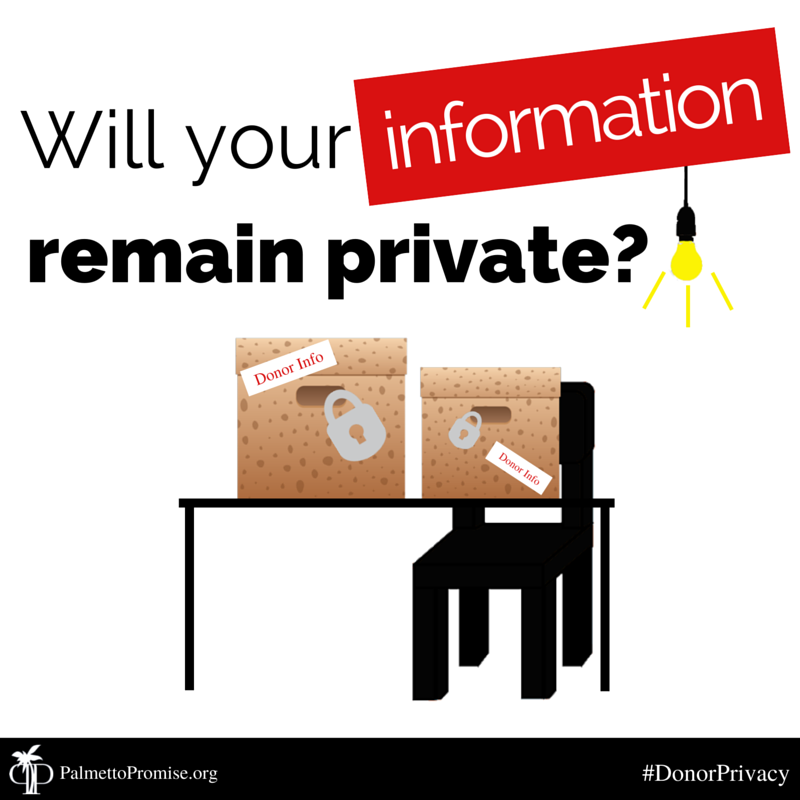Update: Protecting Free Speech in the Palmetto State

Editor
Imagine for a moment a waiter who we’ll call Henry, who quietly donated some of his meager paycheck to a socially conservative organization who was fighting to uphold a traditional definition marriage. Little did he know that his information would be published online by his political opponents, causing him to lose his job and be told by someone who objected to his donation to, “Consider yourself lucky. If I had a gun I would have gunned you down along with each and every supporter.”
Sound like something that could not happen in the United States of America? Think again! A California supporter of the Proposition 8 gay marriage ban was threatened with this exact message in 2008. Though a very serious threat, it certainly is not the only case of political harassment in this country. If donor information had been protected, this and so many other examples would not have happened.
And this impacts everyone, matter which side of heated cultural debates you fall on. Imagine if the deranged shooter of the Colorado abortion clinic had been able to access a list of the addresses of everyone who had financially supported that clinic. The additional loss of human life that day could have been far higher.
That’s why we wrote a few months back in Protecting Free Speech in the Palmetto State that not allowing government to collect and disclose the identities of individual donors to non-profit organizations is critical to the privacy and safety of South Carolina citizens and our Constitutionally- guaranteed rights of free speech and free association.
Unfortunately, many people confuse the debate over government transparency with these fundamental privacy issues. “Sunshine” sounds good…and in most cases it is! The spending of tax payer dollars should be clearly and publically accounted for. And money spent to support the campaigns of politicians should be – and is – disclosed, to deter public corruption.
But the right of individual citizens to privately support causes they passionately believe in – whether on the left or on the right – must be protected. Otherwise, donors are at risk of retaliation – harassment, loss of job, and even physical harm – by those who disagree with them.
So what trends are we seeing around free speech protection in the Palmetto State?
- Ethics legislation currently moving in the South Carolina General Assembly does not currently contain provisions that would violate your free speech rights. But we must remain vigilant to make sure it stays that way. Our lawmakers need to know that you oppose efforts to require donor disclosure for non-profit organizations and support efforts to affirmatively protect your right to donation privacy.
- On the federal level, U.S. Representative Pete Roskam (R-IL) has introduced the Preventing IRS Abuse and Protecting Free Speech Act (H.R. 5053), which would prohibit the IRS from requiring tax-exempt organizations from being required to report information about their donors. This would be another important step to stop the kind of abuse we saw happen at the IRS under Lois Lerner.
Working together, we must protect the ability of all Americans to come together in support of each other and causes they believe in…without the fear of being harassed because of an online government-disclosed list!

